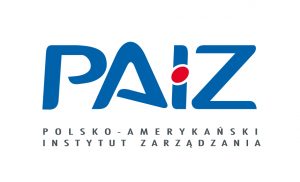Resource Centre
Course Codes and Ressources for your mobile learning experience modules!

Sustainability Manager - Circular Economy
In an age of ever-scarcer resources, growing environmental awareness, and binding environmental legislation, sustainability management has become indispensable in many sectors. The future belongs to those companies that make an active contribution to the sustainable development of our society. In this context, the consideration of all three dimensions of sustainability – ecology, economy, and social issues – plays an important role in order to follow a holistic approach and anchoring it normatively in the company or institution.
The advanced course of study is aimed at sustainability-oriented specialists and managers in companies who are or will be entrusted with work in the area of sustainability and circular economy as part of their legal and administrative duties. While participating in this course, the learners gain an overview of the central tasks of sustainability management based on the current state of business knowledge. They deal with the definitions, development and one concept of sustainability – the circular economy. Further, this course was developed in helping learners to understand and apply economical, ecological, and social criteria of sustainability to different sectors or companies to help them to monitor their compliance and thus to be able to monitor control their development.


Resources
Sustainability Manager - Ciruclar Economy

Constructive Conversations & Coaching Constructive Conversations & Going Circular
Constructive Conversations is a practical training for managers and leaders. Managers are encouraged to practice how to conduct the top four tough conversations:
- Agreeing business aligned objectives with a focus on behavioural stretch
- Giving feedback on poor performance
- Coaching for high performance
- Giving performance feedback where the manager and individual’s expectations differ
This programme aims to enable learners to:
- Learn to find out potential situations to run constructive conversations
- Develop the skills and behaviours to hold these sometimes difficult conversations regularly
- Improve self confidence, self belief and self motivation to run these types of conversations
Since the direct supervisors play such a crucial role in supporting new skills implementation, there are 2 courses, hence 2 course codes, with two separate sets of tasks – for the manager/the learner and for his/her supervisor.

Constructive Conversation
Coaching Constructive Converstaion
Going Circular

How to motivate people who are working remotely
COVID-19 has changed our daily lives radically. Working from home is likely to reduce motivation.
The overall objective of the course is to identify:
- what are the major demotivating factors;
- which are the main positive motivators that can lead to increase work performance
Specific inputs that can support the employees to keep motivation high while working remotely, thus improving their engagement and work performance will be hence provided.
By the end of this training, the learners will be able to:
- understand the concepts of intrinsic and extrinsic motivation;
- acquire knowledge on how to improve career paths;
- understand how to deep bonds within teams in a virtual format;
- understand how to select the most suitable remote web-tool/platform to accomplish specific work tasks;
- understand how to administer their daily/weekly;
- understand how to create high quality graphic and text material using different free web tools;
acquire knowledge on the importance of effective communication and giving feedback.

How to motivate people who are working remotely

Skills-Oriented Team Building
Building effective teams is key for any workplace context. Either in the sense of a “department” as a fixed structure within companies, or ad-hoc, project-oriented teams, team building involves a certain set of skills at the level of both managers and employees. It involves the ability to have a clear overview of own strengths and weaknesses as well as those of employees or colleagues in terms of both hard and soft skills, as well as the ability to come up with working-teams which involve team members, who each time are the most fit for the project at hand, regarding both long-term as well as short-term projects.
The overall objective of the course is to help managers at all levels (and also actors at non-managerial positions) to understand and act upon team-building and team-working as concepts which draw rather from a mix of needed skills, than persons. Skills-oriented teams are thus teams which bring in a complementary set of skills as demonstrated and applied by persons.

